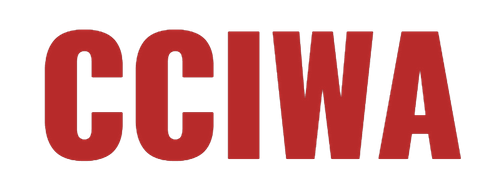If you’re seeking answers about dual diagnosis, you’re likely looking for effective treatment options for co-occurring mental health and substance use disorders. CCIWA promises a treatment that tackles this complexity head-on, but is it the right path for recovery? This article cuts through the noise to offer you a grounded analysis of CCIWA’s dual diagnosis treatment efficacy, providing clarity and direction for those in need.
Key Takeaways
-
CCIWA’s Dual Diagnosis Treatment addresses both substance abuse and mental health issues concurrently through a comprehensive, holistic approach designed to facilitate lasting recovery.
-
A considerable gap in care exists for individuals with co-occurring disorders, but CCIWA aims to fill this gap with tailored treatment programs for the 37.9% of adults with substance use disorders who also struggle with mental health conditions.
-
Despite the high success rate of CCIWA’s integrative approach and the broad range of treatment options, the costs of programs can be a barrier, although the investment is justified by the quality and effectiveness of the treatment.
Introduction to CCIWA’s Dual Diagnosis Treatment

When someone is contending with a substance use disorder alongside one or more mental health conditions, this scenario is recognized as a dual diagnosis. At CCIWA, we advocate for an integrated treatment approach that addresses these concurrent disorders in tandem.
At the heart of CCIWA’s efforts are their plans tailored to tackle the complexities inherent in co-occurring disorders by providing simultaneous treatments for both substance abuse and mental health issues. This comprehensive strategy acknowledges how intertwined these problems are and strives for the patient’s overall well-being. We will examine just how effective this method really is.
Instead of merely suppressing symptoms associated with these afflictions, dual diagnosis treatment centers under CCIWA aim to unearth and confront contributing factors underlying both substance misuse and mental health challenges. The aspiration here extends beyond temporary relief—focusing on sustainable recovery which enhances life quality for those affected.
Prior to evaluating this ambitious assertion through our review, it’s important first to delineate who precisely stands to benefit from such specialized care.
Target Demographics of CCIWA’s Dual Diagnosis Treatment
An estimated 37.9% of adults who are diagnosed with substance use disorders are concurrently dealing with mental health issues. To address this, CCIWA has designed dual diagnosis treatment programs specifically to support these individuals.
The data highlights the troubling prevalence of concurrent disorders among this population. In 2019, only 12.7% received simultaneous treatment for their co-occurring mental illness and substance use disorders – a stark illustration of the inadequate care available for those affected by both conditions. This disparity in access to essential treatment services is an issue that CCIWA aims to rectify.
As a recognized leader in providing suitable treatments for various types of substance abuse problems, CCIWA serves a large segment that urgently requires holistic care options. But what does the path toward recovery at CCIWA look like? We delve into what initiates the healing process within their framework.
Commencing the Dual Diagnosis Treatment Journey

Prior to entering a dual diagnosis treatment center, it is essential to arrange certain preliminaries such as:
-
Organizing your insurance documents
-
Recording which substances have been used improperly
-
Noting how long the addiction has lasted
-
Explaining how these substances were consumed
-
Pointing out any simultaneous medical or mental health conditions
This preparatory information enables CCIWA’s treatment team to develop an individualized plan that caters specifically to the client’s needs.
At the outset of care at CCIWA, comprehensive assessments are conducted. These evaluations investigate substance use patterns, existing mental health issues, and past medical history through methods like laboratory testing, self-disclosure activities, and various evaluation instruments. The insights gleaned from this assessment process are critical for custom-fitting each person’s pathway in recovery.
Safety remains foremost during therapy sessions. At CCIWA, technology is harnessed not only for enhanced security, but also to bolster therapeutic relationships and ensure clients feel satisfied with their progress. By promoting autonomy within individuals undergoing treatment, there exists an invitation towards greater involvement in one’s healing journey.
In terms of financial aspects related to treatment services rendered for both SUDs and coexisting psychiatric illnesses. Majority of health insurance packages offer comparable benefits similar to those designated for physical disease treatments – providing considerable relief concerning monetary burdens associated with such therapies.
With this overview on initiating care under our belt, let us proceed towards delineating the methodologies employed along with framework guiding procedures hereinafter at CCIWA.
Treatment Methodology and Structure

CCIWA specializes in the intricate realm of dual diagnosis treatment, employing a holistic and integrated strategy to tackle both mental health issues and substance abuse simultaneously. The objective at these specialized centers is to ensure that every aspect of recovery is thoroughly addressed through an interdisciplinary approach.
Their program merges various therapeutic modalities including individual sessions, group work, family therapy alongside complementary practices such as holistic therapies paired with a structured schedule. This amalgam provides a nuanced blend designed for whole-person care. CCIWA’s recovery programs are tailored based on the stages-of-change model which considers each person’s unique journey towards lasting sobriety.
A cornerstone of this inclusive methodology is Integrated Dual Disorder Treatment (IDDT), combining services for mental health with those addressing substance misuse by means of a multidisciplinary team deploying stage-appropriate interventions. Fundamental psychological strategies like Cognitive Behavioral Therapy (CBT) and Dialectical Behavior Therapy form key elements aimed at tackling complex psychological challenges associated with dual diagnoses.
The scope extends to diverse therapeutic avenues including but not limited to trauma-informed therapy, EMDR, art therapies along with educational workshops—all enhancing the central pharmacological and psychotherapeutic approaches while also prioritizing familial engagement in the healing process.
To meet varying needs, CCIWA presents options ranging from residential inpatient programs focused on comprehensive detoxification processes aligned with relapse prevention training to developing essential life skills. Extended rehab stays could last up to one year where initial stabilization forms an essential foundation for early-stage sober living environments within long-term rehabilitation settings—creating conditions conducive for sustained recovery though user accessibility remains subject for evaluation within this extensive framework targeting substance abuse and concurrent mental disorders.
User-Friendly Approach to Dual Diagnosis Treatment

CCIWA’s dual diagnosis treatment approach is both all-encompassing and user-centric. The center offers a variety of treatment programs, encompassing residential treatment, outpatient services, partial hospitalization programs, and telehealth assistance. These diverse options are designed to be flexible and accommodate the unique needs of individuals seeking help, enhancing accessibility to care.
For those who lack insurance coverage, many facilities, including potentially CCIWA, offer sliding-scale payments that align with one’s income level. This financial consideration facilitates greater access to necessary care by removing economic obstacles that might otherwise prevent people from pursuing the help they require.
Although residential treatments can provide a thorough approach to recovery. They also come with challenges like having significant time away from job or family duties which might not always be feasible for everyone due mainly because this could entail more expenses too. In response to these concerns, CCIWA has devised multiple versatile treatments that cater to such issues while still striving to ensure maximum reachability of its services to needing individuals.
Aftercare planning is an essential element in CCIWA’s strategy beyond initial therapy sessions. It secures sound exit strategy revolving around substance management mental health continuation strategies plus establishment reliable support systems as individual transitions out of facility. Their comprehensive considerate methodology stands reflection of their unwavering dedication client welfare Ultimately it raises the question – just how effective really is?
Efficacy of CCIWA’s Dual Diagnosis Treatment
CCIWA’s dual diagnosis treatment stands out not just for its user-friendly and holistic approach, but also for the notable success it has achieved in this challenging field.
Take, as an example, a patient who suffered from severe depression and alcohol dependency after sustaining a spinal cord injury and enduring personal trauma potentially linked to post traumatic stress disorder. The individual participated in a therapeutic regimen that included detoxification, relaxation practices, self-esteem enhancement exercises, and cognitive behavioral therapy. This integrative strategy led to triumph over alcohol dependence.
What sets CCIWA apart is their tailored care model that evolves with patients’ shifting needs over time. They ensure seamless transitions between various healthcare services by keeping consistent communication lines open among providers long past initial treatments.
Patients struggling with dual diagnoses face formidable obstacles such as increased suicide risk and greater chances of relapse. Nevertheless, due to its effective methods demonstrating high rates of recovery successes like those seen at CCIWA, it has provided much needed light at the end of the tunnel for sufferers battling these multifaceted disorders.
Addressing Co-Occurring Disorders
CCIWA’s dual diagnosis treatment is distinguished by its holistic strategy in treating co-occurring disorders. Mental health experts with a specialization in dual diagnosis bring their know-how to the forefront, improving the results of such treatments.
The connection between mental health issues such as depression and substance abuse doesn’t go unnoticed at CCIWA. With this insight, they merge comprehensive management strategies for substance abuse within their protocols for addressing co-occurring disorders. This concurrent approach plays an essential role in ensuring both conditions receive proper attention, thereby raising the likelihood of a positive recovery outcome.
To aid individuals on their path to enduring recovery, CCIWA offers continued support post-treatment through programs like sober living facilities and 12-step groups. Techniques focused on emotional backing and motivational enhancement are fundamental elements of CCIWA’s regimen that facilitate sustained success throughout one’s long-term recovery process.
Substance Abuse Management
Managing substance abuse is a critical aspect of dual diagnosis treatment, and CCIWA excels in this area. Initially, the management involves detoxification that typically demands medical supervision to ensure safety and thoroughly cleanse the body of harmful substances.
In its comprehensive alcohol addiction rehabilitation program, CCIWA offers several medications aimed at helping those with intense drug or alcohol dependency or co-occurring disorders cope with cravings and withdrawal symptoms effectively. The list of these medications includes Buprenorphine, Disulfiram, Naltrexone, Methadone, and Acamprosate.
The role of these medication-supported treatments for substance abuse is essential in reducing the physiological impact associated with dependency while simultaneously laying foundations for mental recovery.
Nevertheless, completing residential treatment marks not an end but a transition wherein patients must adapt to everyday life after leaving behind constant care. This change often poses significant challenges. CCIWA’s thorough post-treatment planning provides former patients with tools necessary for successfully managing their newfound independence during recovery.
Considering such complexities inherent in transitioning from structured support environments back into daily routines raises questions about the value proposition offered by CCIWA’s approach to treating dual diagnosis cases—a subject we will explore next.
Is CCIWA’s Dual Diagnosis Treatment Worth It?
Determining the worth of an investment requires weighing up the expenses against the benefits and effectiveness of what’s on offer. The dual diagnosis treatment provided by CCIWA stands out for its holistic approach to care combined with a track record of successful outcomes, representing significant value in exchange for your monetary commitment.
One should recognize that costs associated with drug rehabilitation can fluctuate widely based on factors like program specifics, length of treatment, and caliber of facilities. Charges can span from:
-
roughly $1,615 for basic non-methadone outpatient programs,
-
to about $23,590 for therapeutic community treatments,
-
residential treatments hover around an average cost of $42,500,
-
while high-end luxury centers may demand upwards to $80,000.
Despite being more costly and demanding in terms both financially and timewise. The regimented support plus extensive services delivered through residential treatment are often pivotal components necessary to secure sustained recovery. Henceforth, the steep expense tied to CCIWA’s program could be regarded as investing into a more stable future health-wise. Nevertheless, it begs questioning whether there are alternative options equally worthwhile. We will delve into this inquiry further.
Potential Alternatives to CCIWA
Exploring different options for dual diagnosis treatment could be beneficial, beyond what is provided by CCIWA. Free by the Sea in Washington State presents a variety of addiction treatment programs that address co-occurring disorders through residential and non-residential services. The expense associated with outpatient rehab can vary greatly, with prices ranging from about $1,400 to $10,000 for an average month-long program.
Considering publicly funded facilities designed specifically for long-duration care in cases of dual diagnoses might also prove advantageous. These institutions may charge fees starting from approximately $8,000. When evaluating these potential choices, it’s crucial to assess not only their financial impact, but equally the caliber and thoroughness of the treatment programs they provide.
The Bottom Line on CCIWA’s Dual Diagnosis Treatment
The effectiveness of CCIWA’s dual diagnosis treatment is principally based on its impressive success rates, the holistic approach it employs, and the tailored attention provided to patients. The efficacy of their method is reinforced by testimonials from patients who report considerable progress in handling both addiction and mental health issues thanks to CCIWA’s individualized care.
Nevertheless, criticisms have emerged regarding CCIWA’s elevated expenses that could restrict access for some groups. Despite these concerns being legitimate, the extensive support offered by CCIWA coupled with notable outcomes justifies the investment for those dealing with co-occurring disorders.
Summary
In the complex world of dual diagnosis treatment, CCIWA stands out for its comprehensive, integrated approach. By treating substance abuse and mental health issues concurrently, CCIWA addresses the root cause of these issues and paves the way for long-term recovery. Its personalized care, high success rate, and user-friendly approach make it a beacon of hope for individuals struggling with dual diagnoses.
While concerns about cost and accessibility are valid, the comprehensive care and high success rate of CCIWA’s dual diagnosis treatment provide significant value for money. As we conclude, it’s important to remember that the journey to recovery is a personal one. The key is to find a treatment option that addresses your unique needs and sets you on the path to a healthier, happier future.
Frequently Asked Questions
What is dual diagnosis treatment?
A holistic approach, dual diagnosis treatment is tailored to assist individuals grappling with mental health issues alongside substance use disorders.
What is the target demographic for CCIWA’s dual diagnosis treatment?
CCIWA specializes in dual diagnosis treatment, which is specifically designed for those suffering from both substance abuse and mental health disorders. This approach ensures that individuals receive integrated care tailored to address these intertwined issues concurrently, providing extensive support aimed at this particular group.
What makes CCIWA’s approach to dual diagnosis treatment unique?
The method employed by CCIWA for dual diagnosis treatment stands out due to its simultaneous, integrated focus on both substance abuse and mental health issues. By acknowledging the interplay between these areas, it aims to enhance overall wellness.
Such a strategy distinguishes this approach from alternate modes of treatment that may not concurrently address the intricacies of substance abuse and mental health concerns.
What alternatives exist to CCIWA’s dual diagnosis treatment?
Consider exploring alternative treatment facilities like Free by the Sea, or investigate publicly supported centers focused on extended dual diagnosis care.
These alternatives might offer different routes to meet your specific requirements.
Is CCIWA’s dual diagnosis treatment worth the cost?
Indeed, the value for money offered by CCIWA’s dual diagnosis treatment is underscored by its thorough approach to care and notable success rates, rendering it an important option for those contending with co-occurring disorders.


